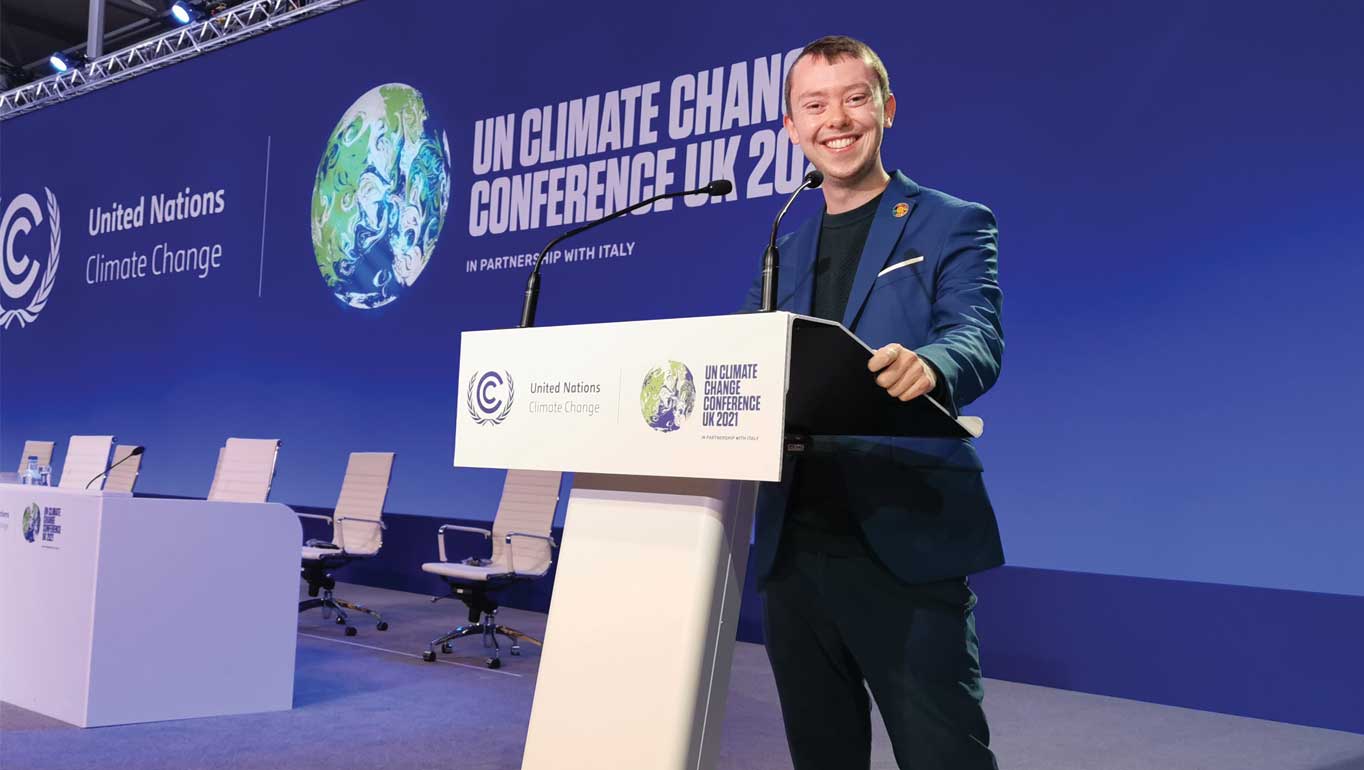Walker Darke, former ECE Consultant and now Forbes under 30 2023, is recognized for vital work on the UN’s 2050 Carbon Neutrality Roadmap, emphasizing immediate action and global cooperation to combat climate change.
Now 28, he was brought up in Wolverhampton, UK, and is currently a PhD candidate at Fudan University in Shanghai, China. This year, he was named in Forbes Magazine’s Under 30 Europe Class of 2023 thanks to work on the United Nation’s Roadmap to Carbon Neutrality by 2050 for Europe, North America, and Central Asia roadmap. It does not take a big stretch of the imagination to understand why this report is so critical to the future of people and the planet alike.
In the report, Walker and his colleagues examine the implications of various routes toward carbon neutrality. They assess whether these pathways are technically feasible, economically viable, and socially acceptable. The report emphasizes the need for immediate and vigorous action, highlighting that achieving carbon neutrality by 2050 requires bold and continuous efforts, along with the full utilization of low- and zero-carbon technologies.
Walker’s inclusion in Forbes’ Under 30 Europe Class of 2023 is a personal achievement but in his own words is also something that goes far beyond his own accomplishment. “This recognition amplifies the urgency and importance of the work we’re doing, especially in the field of sustainable energy and carbon neutrality”, he says. “This accolade will open new doors and create opportunities for further collaboration and innovation. It adds a layer of credibility and urgency to our initiatives, which I hope will motivate governments and organizations to act more decisively in combating climate change”.
Being the lead author on the 2050 Roadmap has been both challenging and rewarding, Walker says. The responsibility and potential impact of such a report are undeniably significant. Although it’s still too early to gauge the report’s full impact, the team recognizes that Forbes’ recognition has played a role in bolstering its global visibility and will further strengthen its influence.
The team is using several key indicators to assess that influence. “The more policies that are enacted based on our guidelines, the closer we’ll be to achieving our goals. We’re tracking the diversification of energy sources and the reduction of fossil fuel dependency across regions, and a key indicator of progress here would be the increase in investments in low- and zero-carbon technologies in these regions”.
Another, albeit less quantifiable, sign of positive progress is a shift in collective attitudes, according to Walker. “As individuals, regardless of our best intentions, we won’t have a significant impact simply by remembering to turn out the lights.
It’s our collective mindset that will enable change. Public awareness and engagement are crucial. The roadmap’s success is measured not only by policy changes but also by how effectively it mobilizes communities to take action”.
Walker and his team have analyzed the transition from today’s carbon-driven systems to carbon-neutral alternatives—a remarkably complex journey, he says. Within the Roadmap, they have identified several points of focus. “We need a strong emphasis on diversifying energy sources, relying more on renewables such as solar, wind, and hydropower, while also exploring hydrogen and carbon capture technologies for emission-heavy industries. Electrification plays a pivotal role, and we should increase the use of renewable electricity in various sectors, including transportation and heating”.
The 2050 Roadmap underscores the significance of international cooperation to address global climate challenges, proposing frameworks for cross-border energy collaboration and knowledge sharing, which is central to realizing the report’s ambitions, notes Walker.
The role of young people, specifically those under 30, cannot be emphasized enough. According to Walker, young individuals who wish to get involved should contemplate how they can best contribute. Solving the climate crisis will need a diverse array of experts with different types of knowledge and passions. “Collaborate, join networks, and share your expertise,” he advises, emphasizing the need for a multidisciplinary approach. To young researchers and activists eager to make a difference, my first piece of advice would always be to find your niche. The field of sustainability is vast, and while it’s important to have a broad understanding, specializing in an area you are passionate about can make your efforts more effective”.
The UN’s Roadmap to Achieve Carbon Neutrality by 2050 in Europe, North America, and Central Asia has been integrated into the recently revamped UNECE’s Carbon Neutrality Toolkit website. This platform acts as a comprehensive source of information for governments, organizations, and individuals seeking insights and guidance on adopting carbon neutrality strategies. The content is accessible in both English and Russian and includes an array of resources, such as technology briefings, policy documents, and other crucial materials. These resources offer a comprehensive roadmap for transitioning towards energy systems that are carbon-neutral.



